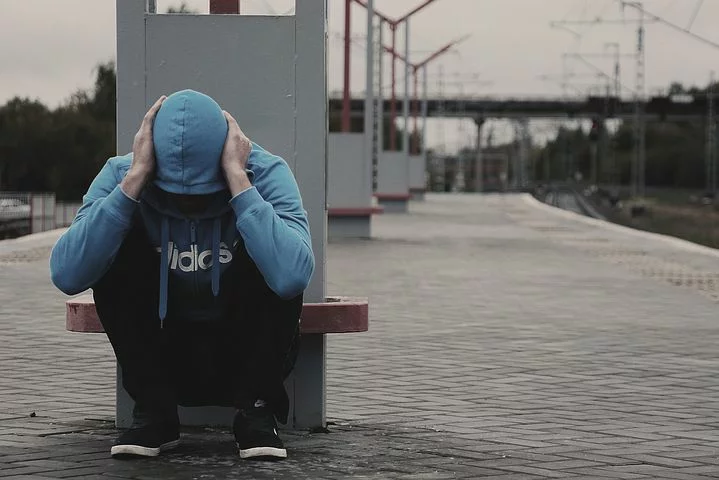For those struggling with agoraphobia like Prince Harry, fear of being in public spaces can make people prisoners in their own homes. However, like many mental health disorders, agoraphobia is highly treatable with the right kind of care.
Imagine your comfort zone being limited to only a few familiar spaces, perhaps not even extending beyond your own home; this is what living with agoraphobia is like. In recent news Prince Harry recently disclosed his experience with agoraphobia in his new memoir, Spare, detailing the intense feelings he experienced during public engagements as a member of the royal family.
An anxiety disorder characterised by an extreme fear of having a panic attack in a public place, agoraphobia can make conducting daily tasks nearly impossible. Understanding this disorder, including where it comes from and how it can be treated, is critical in living a full, healthy life.
What Causes Agoraphobia?
Agoraphobia literally means “fear of the marketplace,” and people living with it feel an extreme aversion in venturing into public places. Like most mental health disorders, the exact causes of agoraphobia are unknown, but research has shown there are some factors that can increase the risk of developing this debilitating anxiety disorder. Risk factors can include things like:
- A family history of agoraphobia
- Previous physical or sexual abuse
- Having other phobias
- Depression
- Other anxiety issues, such as social anxiety disorder, generalised anxiety disorder or panic disorder
- Substance addiction
For most people, agoraphobia develops over time, and generally follows a stressful or traumatic life event that can cause one to retreat into themselves or a comfortable space. This could be a sudden job loss, the end of a relationship, or the death of a loved one. While taking time to heal and recuperate from a major event is a normal and healthy reaction, when this period is not followed by a gradual re-entry into daily activities, this can indicate that something deeper is going on.
For Prince Harry mental health is an issue that he’s brought to the forefront repeatedly, such as in interviews with the feature news program 60 Minutes and UK TV journalist Tom Bradby. These Prince Harry interviews have covered the trauma of losing his mother, and his anxiety during public events. Prince Harry and Meghan have also jointly spoken about their mental health struggles, and the extreme pressures of life in the public eye.
Agoraphobia and Panic Attacks
In some cases, a major life event will be so traumatic that a person will begin experiencing panic attacks in response. Symptoms of panic attacks include:
- Difficulty breathing
- Racing, pounding heartbeat
- Feeling of doom, like you are going to die
- Chest pain or tightness
- Nausea or diarrhoea
- Sweating and shaking
- Dizziness, feeling like you are going to faint
- Hot flashes or chills
Panic attacks can be terrifying and debilitating. People may worry that a panic attack will draw negative attention from bystanders, or that they won’t be able to help themselves. Some might refuse to go out unless someone they trust accompanies them, while others will try to avoid going out at all. Agoraphobia can become so severe that people will not leave their homes for extended periods of time – sometimes decades, and will have extreme anxiety over having to venture out.
Agoraphobia vs. Social Anxiety Disorder: What’s the Difference?
While both agoraphobia and social anxiety disorder are types of anxiety disorders that can result in an avoidance of public places, there is a fundamental difference between the two. Agoraphobia stems from a fear of loss of control in a public place, often related to the potential for a panic attack. Social anxiety disorder is rooted in a fear that one will be judged or scrutinised by others. So, while someone with social anxiety disorder may avoid gathering with friends or participating in a work meeting, they wouldn’t necessarily have a problem riding public transportation or being in a public setting where social interaction doesn’t occur.
Some people will struggle with just one of these disorders, while others may have both. In either case, it is important to understand the root causes of the anxiety in order to provide effective treatment that will allow a person to return to their normal life.
Diagnosing Agoraphobia
Being familiar with the symptoms of agoraphobia can help you know if you or a loved one may be struggling with this life-changing mental health disorder. Common symptoms of agoraphobia include things like:
- Being afraid of public transportation
- Fear of losing control in a public place
- Feeling afraid of enclosed buildings or spaces
- Fear of leaving home
- Being afraid of open spaces, like bridges or shopping centres
- Fear of having to engage in social situations alone
- Being afraid of places where you feel like leaving or escaping would be difficult
These fears are typically out of proportion to the potential threat, and almost always act as triggers for extreme anxiety, including panic attacks. For people to be diagnosed with agoraphobia by a health professional, these symptoms must have caused some type of disruption to their daily lives, and have persisted for six months or more.
Treatment Options for Agoraphobia
If you’re struggling with agoraphobia, you may be wondering “is agoraphobia treatable?” Agoraphobia doesn’t have to be a life sentence. Treatment has been shown to be effective in minimising and managing symptoms of agoraphobia and greatly improving quality of life. There are a variety of different treatment options available for treating agoraphobia, and a combination of options may be helpful in best addressing symptoms.
Cognitive Behavioural Therapy (CBT)
One of the most common forms of mental health therapy, cognitive behavioural therapy (CBT) is a goal-oriented type of talk therapy. It focuses on helping the client to become aware of negative responses, feelings, and behaviours and to learn how to respond to these situations in a more effective way.
Exposure Therapy
In exposure therapy, you are gradually introduced to the source of your fear in a safe environment and under the guidance of a therapist. Exposure may be through imagining the situation, directly experiencing it, or invoking sensations related to the fear (such as running to raise the heartbeat). This process may also be combined with relaxation exercises to help condition the body to relax instead of defaulting to a stress response.
Lifestyle Changes
Mental health is greatly impacted by physical health, and a health professional will work with you to ensure that you are practising proper sleep hygiene, getting the right nutrition, and exercising. Improving these foundational elements of health can help set the stage for more effective therapeutic results and a lasting recovery.
Relaxation Techniques
Proven relaxation methods like deep breathing, progressive muscle relaxation, mindfulness meditation, and other stress-relieving exercises can be very useful in managing panic attacks and lowering overall anxiety levels. Mental health practitioners can help you integrate these healthy habits into your daily routines.
Overcoming Agoraphobia at The Dawn

The Dawn Wellness Centre and Rehab is a unique mental health retreat in Thailand that uses a holistic approach to healing mental health and addiction issues. At The Dawn, our Mental Wellness Programme has been specially designed to help our clients gain a deeper understanding of their symptoms and learn skills to manage their condition. Our compassionate, experienced clinical team uses a mix of the latest Western psychotherapeutic techniques and scientifically-proven Eastern wellness practices to ensure holistic healing and instill lifelong healthy coping mechanisms.
At The Dawn, our team is also aware that many clients will have co-occurring disorders, meaning that other mental health issues such as depression or addiction may also be present. The Dawn is skilled at diagnosing and treating co-occurring disorders, which ultimately results in more successful outcomes for the client.
Call The Dawn today to learn more about how we can help you reclaim your life.
Related Posts
 Without Warning – Understanding Panic Attacks
The sudden onset of a panic attack can literally bring you to your knees, and leave you wondering why it happened – and if it might happen again. One famous...
Without Warning – Understanding Panic Attacks
The sudden onset of a panic attack can literally bring you to your knees, and leave you wondering why it happened – and if it might happen again. One famous...
 How to Treat Anxiety – the Most Effective Ways to Stop Anxiety from Taking Control of Your Life
Everyone experiences anxiety on occasion. It is often a useful, effective and healthy reaction to heightened stress. Likewise, it is something that we can understand and resolve. However, some people...
How to Treat Anxiety – the Most Effective Ways to Stop Anxiety from Taking Control of Your Life
Everyone experiences anxiety on occasion. It is often a useful, effective and healthy reaction to heightened stress. Likewise, it is something that we can understand and resolve. However, some people...
 When Does Anxiety Become an Anxiety Disorder?
It’s normal to feel anxious occasionally. We’re supposed to feel anxious when faced with a legitimate threat or when we’re trying to get something we really want, like a date...
When Does Anxiety Become an Anxiety Disorder?
It’s normal to feel anxious occasionally. We’re supposed to feel anxious when faced with a legitimate threat or when we’re trying to get something we really want, like a date...
 Do We Have More Mental Health Problems These Days? The Most Common Disorders Listed
October 10 is recognised as World Mental Health Day – while awareness around mental health continues to improve, often questions still remain about how and why mental health issues arise. A...
Do We Have More Mental Health Problems These Days? The Most Common Disorders Listed
October 10 is recognised as World Mental Health Day – while awareness around mental health continues to improve, often questions still remain about how and why mental health issues arise. A...





